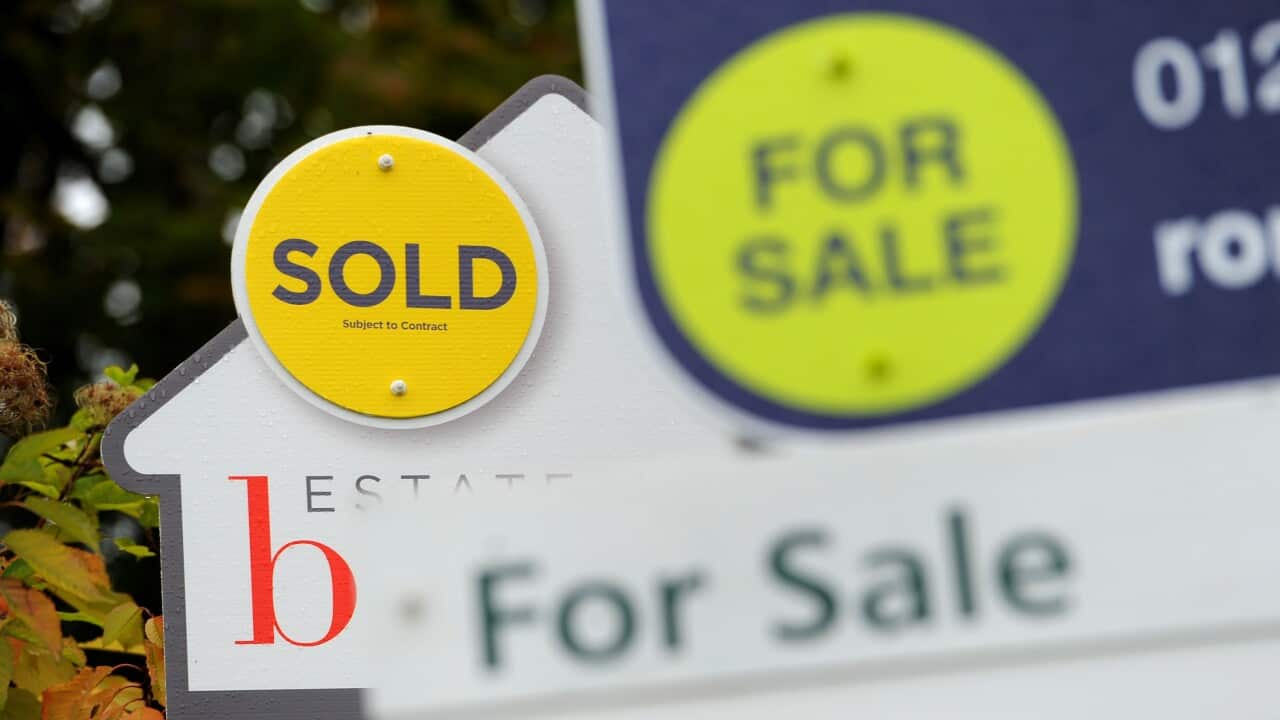Key Points
- New data finds the national median home value is now $753,654.
- There has been slower home price growth over November.
- Melbourne recorded a 0.1 per cent decline and Sydney a weak 0.3 per cent lift.
More homes listed for sale and a 13th interest rate hike are likely taking some heat out of the housing market's recovery.
The pace of growth may have slowed, but the national home value index from real estate data firm CoreLogic still sailed past its previous record high in November.
The national median home value is now $753,654, with growth of 7 per cent recorded on an annual basis.
A separate property price index from PropTrack also found a record high in November.

Source: SBS News
According to PropTrack, Perth recorded the biggest jump in median house price values, which rose 13.33 per cent to $666,000.
Darwin and Hobart's house prices went backwards 1.97 per cent and 3.01 per cent, respectively.
Unit prices painted a similar picture state-by-state, however, Brisbane recorded the largest jump, with 9.17 per cent growth year-on-year.

Source: SBS News
CoreLogic's monthly data showed the picture varied across different cities, with Melbourne recording a 0.1 per cent decline and Sydney a weak 0.3 per cent lift - the smallest increase of the growth cycle.
Sydney home prices could also follow Melbourne into decline, with the city's housing market slipping into negative growth in the final week of the month.
But dwelling values in Perth rocketed up another 1.9 per cent over the month, 1.3 per cent in Brisbane and 1.2 per cent in Adelaide.
CoreLogic research director Tim Lawless said the weakening conditions in the two biggest cities was most concentrated in the premium stock, which tend to start shifting before the rest of the market.
"The Melbourne Cup day rate hike has clearly taken some heat out of the market, but other factors like rising advertised stock levels, worsening affordability and persistently low consumer sentiment are also acting as a drag on value growth in some markets," he said.
At the same time, an ongoing imbalance between supply and demand was keeping upwards pressure on prices in Brisbane, Adelaide and Perth.
PropTrack senior economist Eleanor Creagh said price growth could be expected next year but at a slower pace than in 2023.
"Looking ahead, price growth is expected to continue as the positive tailwinds for housing demand and a slowdown in the completion of new homes counter the sharp deterioration in affordability and slowing economy," she said.










